Honouring darkness and death in grand style – why you should be celebrating Halloween the Irish way
Samhain, the ancient Celtic festival that pre-existed Halloween, is having a resurgence in Ireland and beyond. Anna Hart speaks to historians, spiritual leaders and revellers to learn about an ancient wisdom the Irish were forcibly taught to forget
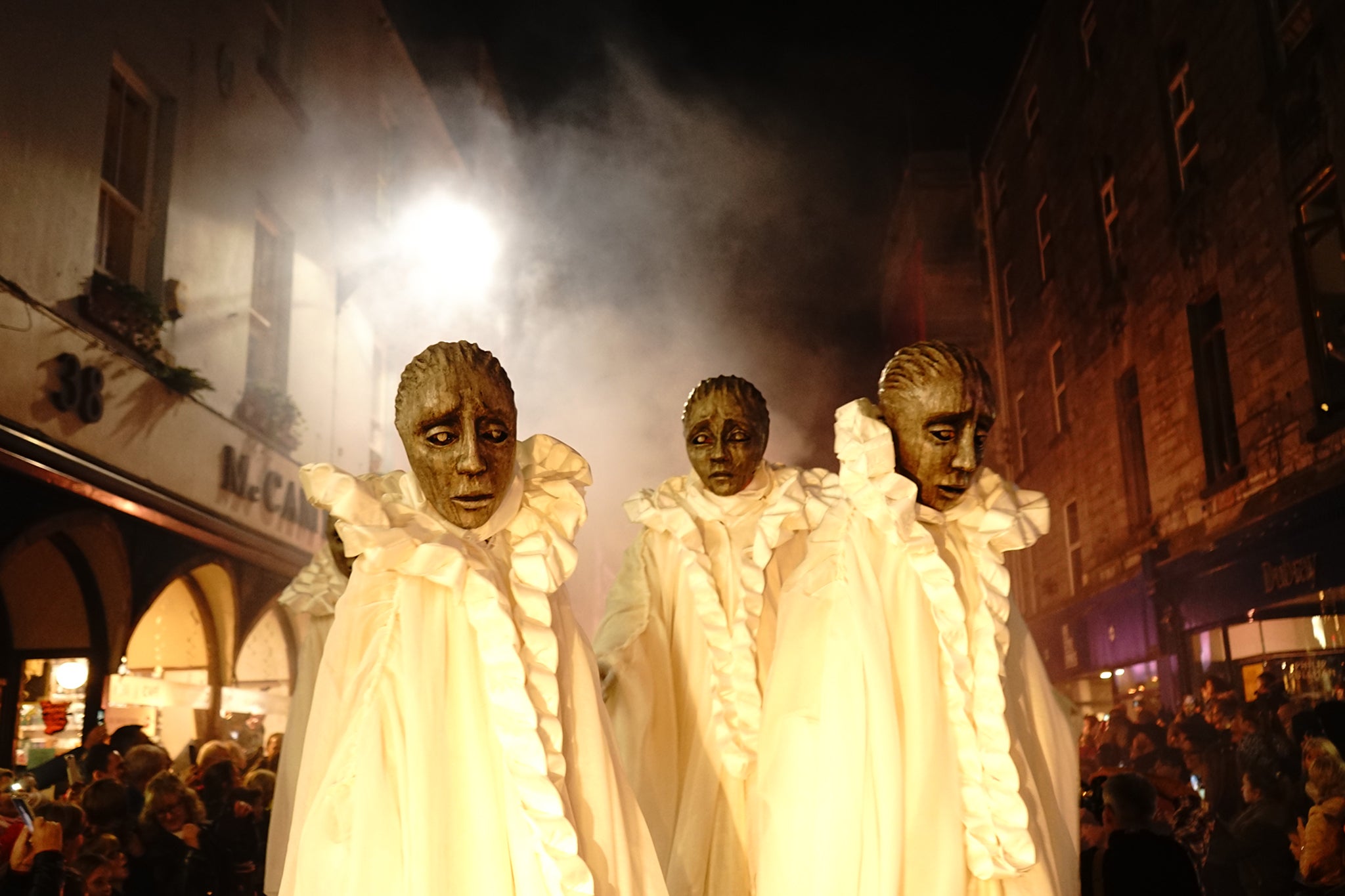
Of all the elaborate ideas humans have come up with to make life more bearable, one of our most creative and enduring is this annual celebration of death, decay and darkness. Be it Dia de los Muertos in Mexico, or Halloween all around the globe, or Samhain in Ireland, macabre seasonal festivals are about embracing the inescapable approach of the darker, colder and more fatal half of the year.
Growing up in Belfast, I loved Halloween more than any other celebration on the calendar: the scary movies, the socially acceptable begging for sweets, the gothic fashion, the smell of smoke and sparklers.
But it’s shamefully recently that I learned about the ancient Celtic roots of Halloween.
My favourite Halloweens were celebrated in Derry, where every single person on the street would be in fancy dress; if you weren’t dressed up, people stared at you in alarm.
I went to a Protestant school and chose to learn Spanish and French (so I could escape Belfast for a glamorous European country as soon as possible), yet the sound “Samhain” (pronounced SOW-in) is relatively new to my ears.
My Catholic friends were introduced to it as the Irish language word for “November”. Today, there is a huge resurgence in interest in the Irish language and a more widespread appreciation for the culture we lost in Ireland through colonisation, Christianity and capitalism. At least in my consciousness, Samhain was a casualty of these three Cs.
This is changing. In Ireland, we don’t celebrate Halloween on the night of 31 October anymore, we call it Samhain.
Mythology historian and author Anthony Murphy began to notice a renewed interest in ancient Irish spiritual practices after the economic crash of 2008. “Another factor is the shift away from organised religion in Ireland, in the aftermath of paedophilia scandals among Irish Catholic priests,” he says.
More recently, we’ve experienced a global movement towards “decolonised” thinking, seeing previously erased or derided indigenous culture and customs being revived, reclaimed and celebrated. My friend Chris Connors is a meditation teacher, retreat leader and death doula who splits his time between Ibiza and Ireland.
“Our own indigenous wisdom traditions are rightfully coming back to new generations in Ireland. They are the same traditions that have been revered elsewhere in the world but were somehow ridiculed in our own land – this is telling! But it’s changing,” he says.

Samhain is one of four seasonal Celtic quarter-day festivals, marking the end of the harvest season and the start of the darker half of the year when the cold kills off plants and animals, and humans too. It’s thought all fires had to be extinguished to give the shadow side, the darkness, death its dominion before fires were relit.
At Samhain, the division between this world and the otherworld is at its “thinnest”, allowing spirits and dead ancestors to pass through.
In Ireland, we talk about “thin places” as places where we’re closer, sometimes uncomfortably close, to the spirit world.
It’s thought that costumes and disguises as harmful spirits emerged to ward off evil, feasts were prepared for the living and the dead, and then, with great ceremony, a huge bonfire was built at the sacred hill of Tlachtga in the Boyne Valley. This signalled that other fires could be relit, that light was back, and that light – in the form of spring – would also return to us after the darkness of winter.
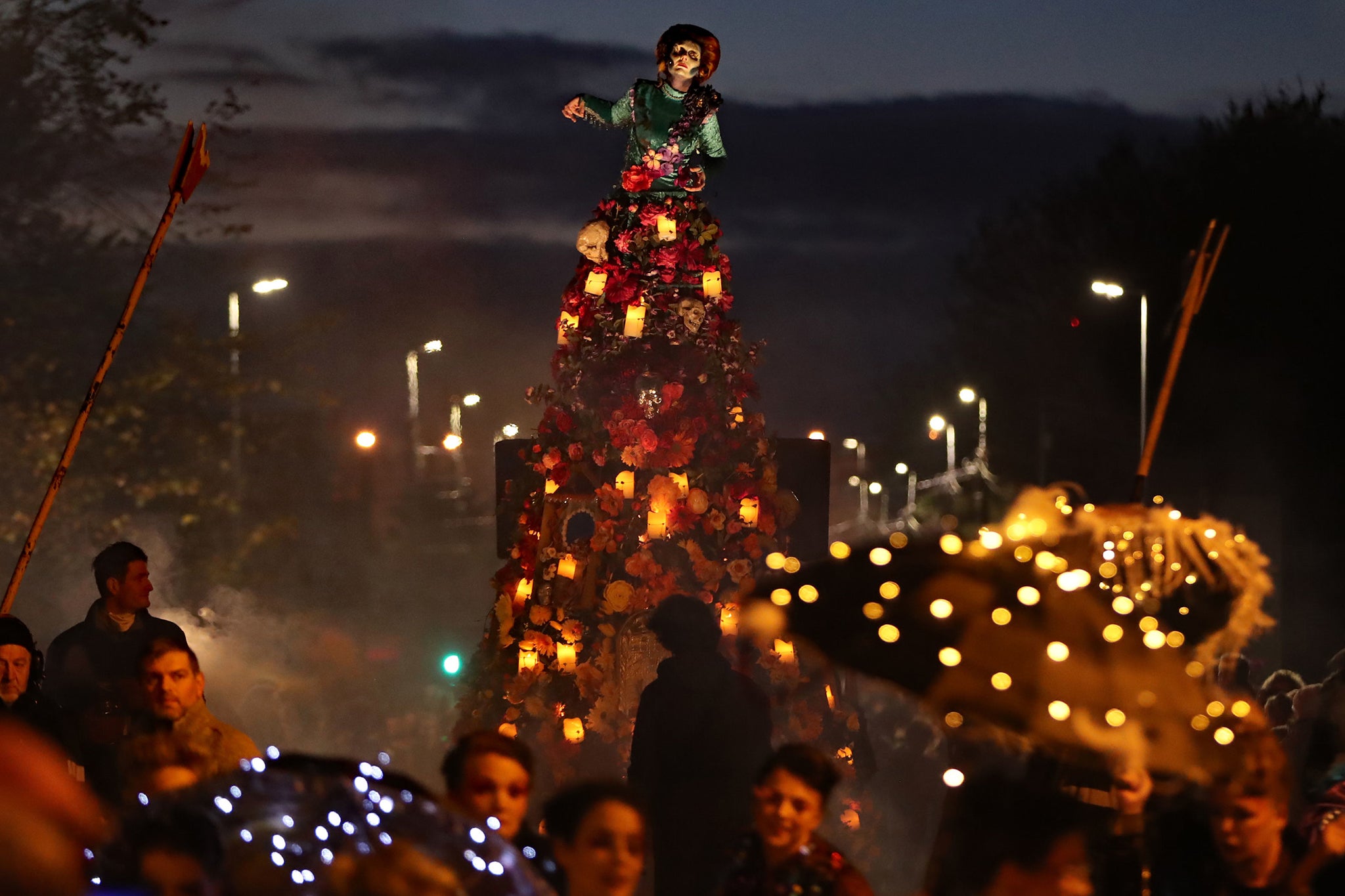
“Fire is a way of opening up the dark unknown spaces that we do not need to fear,” says Connors. “When I’m asked about a Samhain ritual, I suggest using a fire pit or a candle to connect with loved ones who have passed … honouring them for being a part of your life. Give them space in your thoughts and feelings. Maybe add some music and some good food to toast and celebrate them.”
This year, he’s spending Samhain sitting around a fire with friends, telling stories about the people we love who have passed – in the case of Connors, his beloved dad.
“I believe that Ireland has always had a healthy relationship with death – just think of the ritual of the wake – and a renewal of interest in Samhain is just part of our growing need to deepen our connection to life beyond the constraints of our intellect, through ritual and ceremony.”
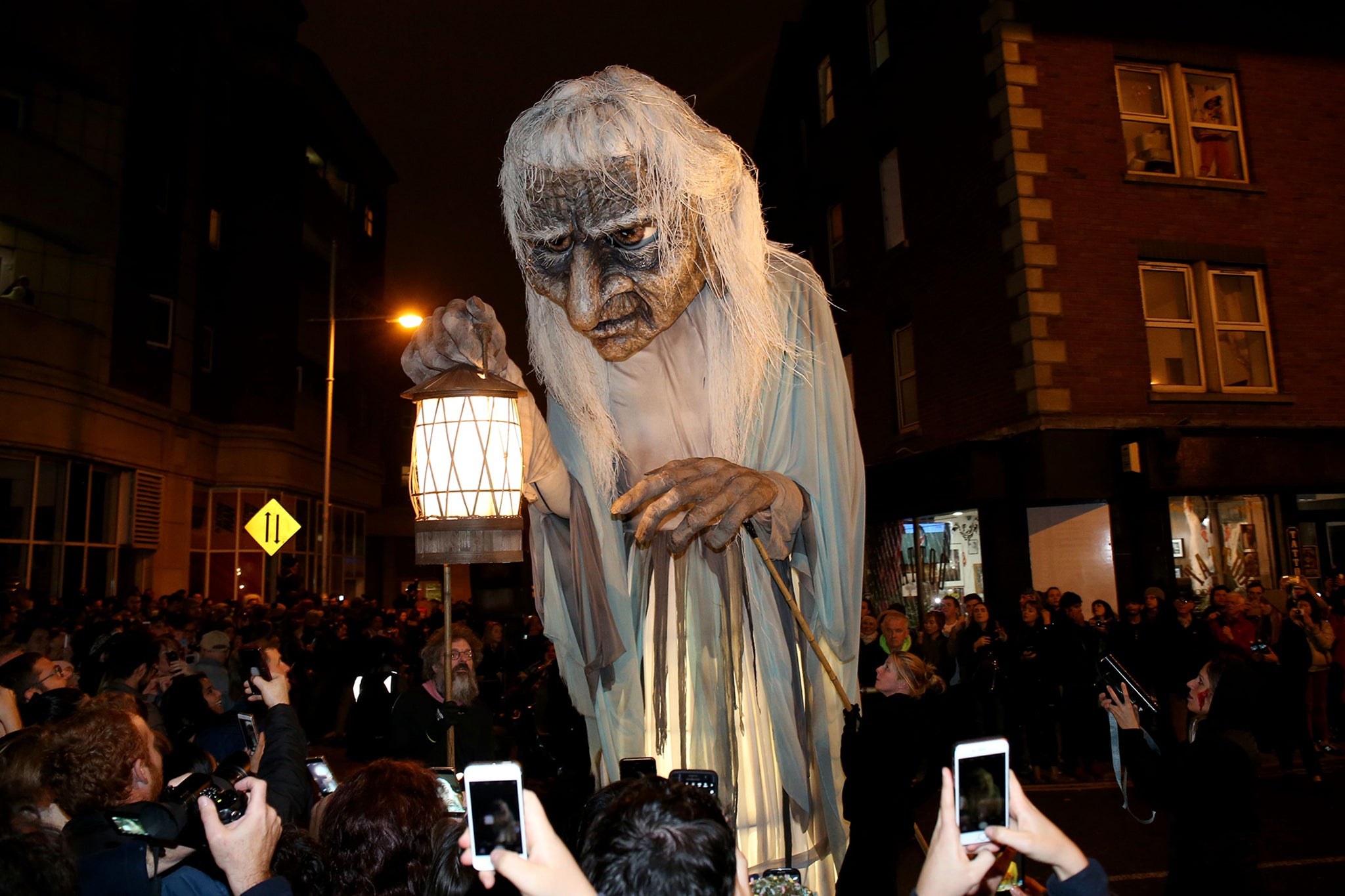
Christianity arrived in Ireland in the fifth century AD, and incorporated the honouring of the dead into the Christian calendar with All Saints’ (All Hallows) Day on 1 November, followed by All Souls’ Day on 2 November; moving the date from May to capitalise on and absorb the pre-existing festival.
Irish emigration to America, particularly during the famine of the 1840s, almost certainly imported these customs and rituals to a nation that made it their own.
Growing up, I knew none of this; I believed that in Ireland we’d nicked Halloween from the Americans, who do it best. Now, I realise that actually, in Ireland we do it best.
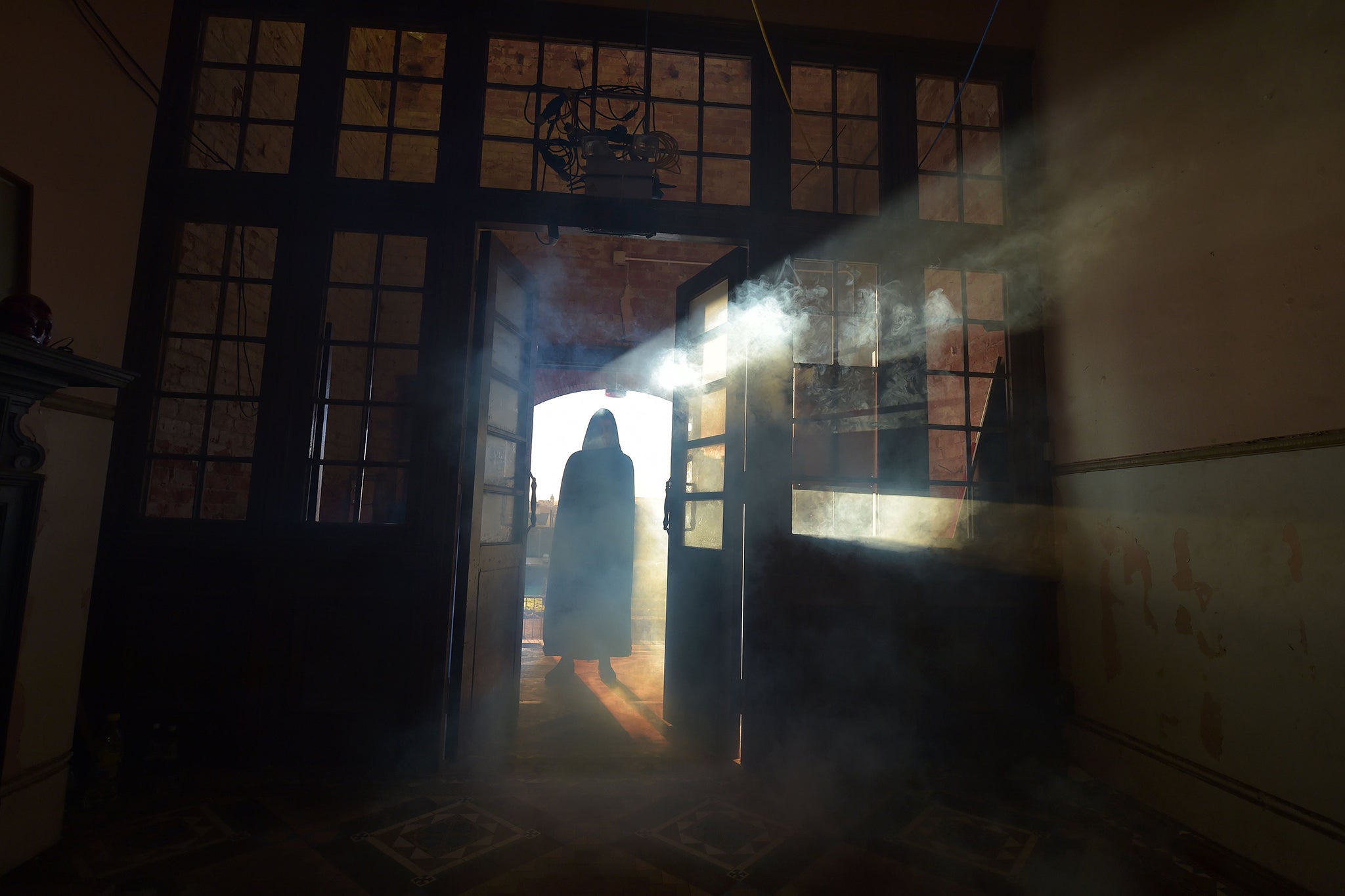
And although the end of harvest might not cause us quite as much grief as when we were dependent wholly on our crops, the darker half of the year is still a time of trepidation, when we fear our dark moods, the cold, the discomfort.
Spiritual mentor Dr Kate Tomas has a PhD in theology, and she emphasises the significance of feasting when we’re facing down death at Samhain.
“I tell people to cook a meal that speaks to your lineage, your ancestors, and leave a plate at the table as an offering to the dead,” she says. “This is the true meaning of Samhain – Halloween isn’t about witch costumes and plastic decorations, it’s about honouring darkness and death.”
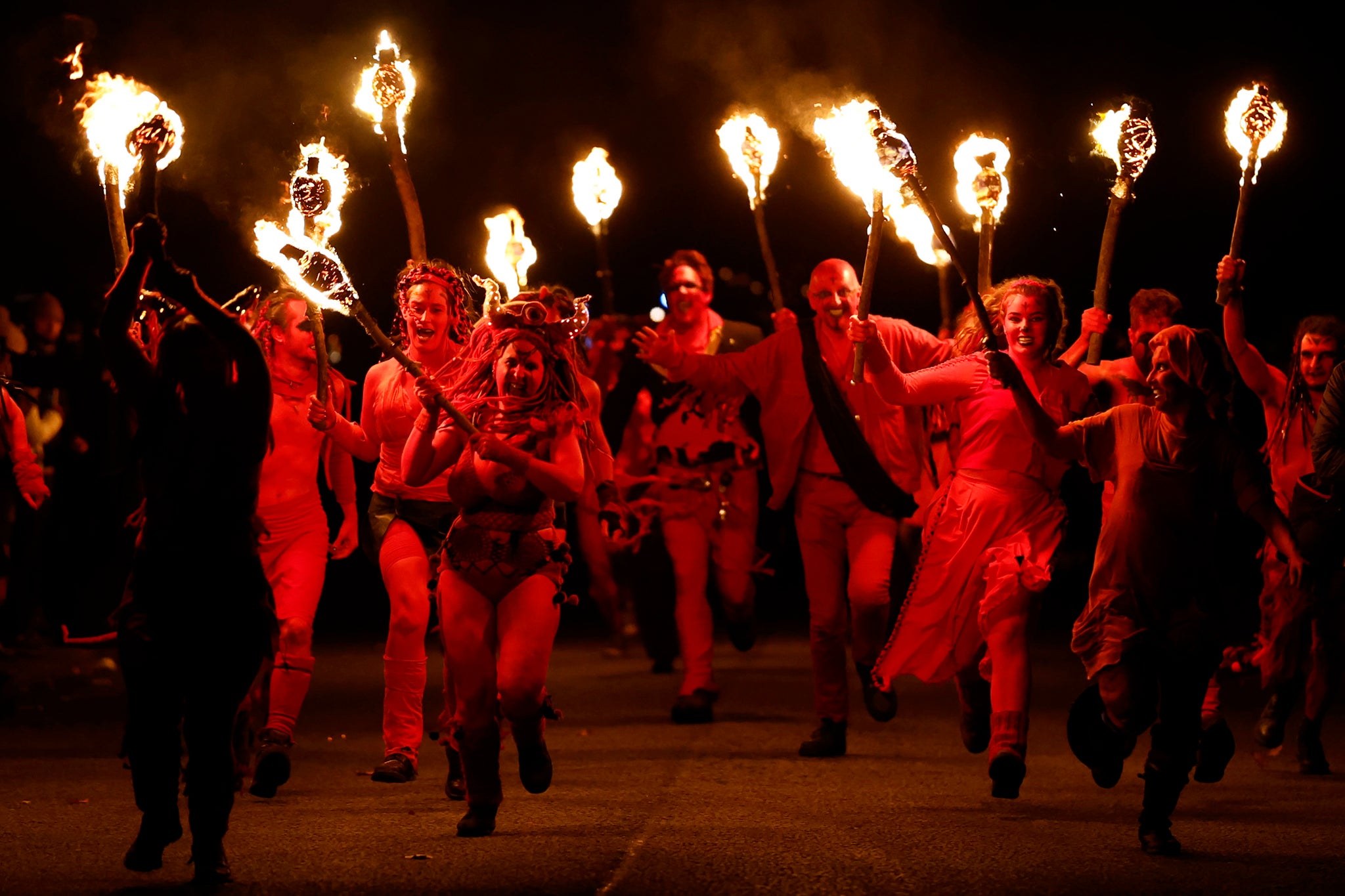
What I love most about Samhain in Ireland is that it is being celebrated in small, intimate rituals – but it’s also being done in grand style. Two years ago, I went to my friend Rosena Charmoy’s birthday party. Like me, Charmoy grew up in Belfast loving Halloween, but not knowing anything about Samhain.
“When I learnt about the Celtic roots of Halloween, it became so much more important to me,” she says. Charmoy and her husband, Freed, have 20 years of event planning in Marrakech through their company, Boutique Souk, organising Madonna’s 60th birthday party, and Poppy Delevigne’s wedding, plus VIP events for Dior, Chanel and YSL – so I knew this Samhain party wouldn’t be boring.
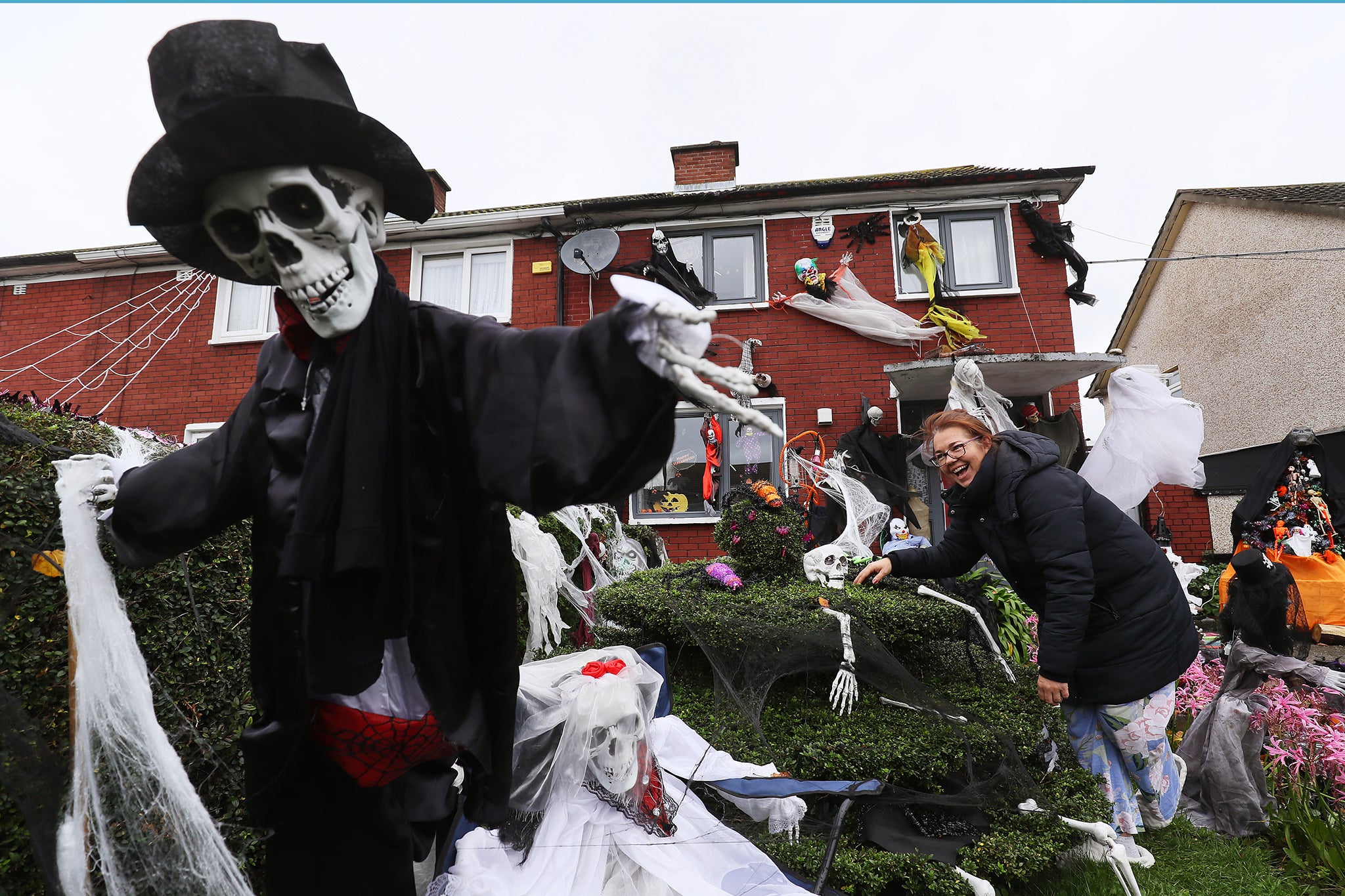
“We chose the Samhain theme to celebrate my significant birthday and the opening of our hotel, Farasha Farmhouse,” says Charmoy. “Our decoration included traditional themes of Samhain and harvest with 400 pumpkins, a thousand bales of straw, a pomegranate juice stand and, of course, thousands of candles and open fires.”
Samhain and Celtic themes were woven through the night, with Celtic blessings and sage cleansing when we arrived – plus a mezcal bar – and guests dressed up in “Witches’ New Year” costumes. We were all asked to bring trees as gifts, to grow a circular palm forest on the farm. “I saw it as a way of celebrating the division between old and new, and honouring Irish and Moroccan hospitality,” she says.
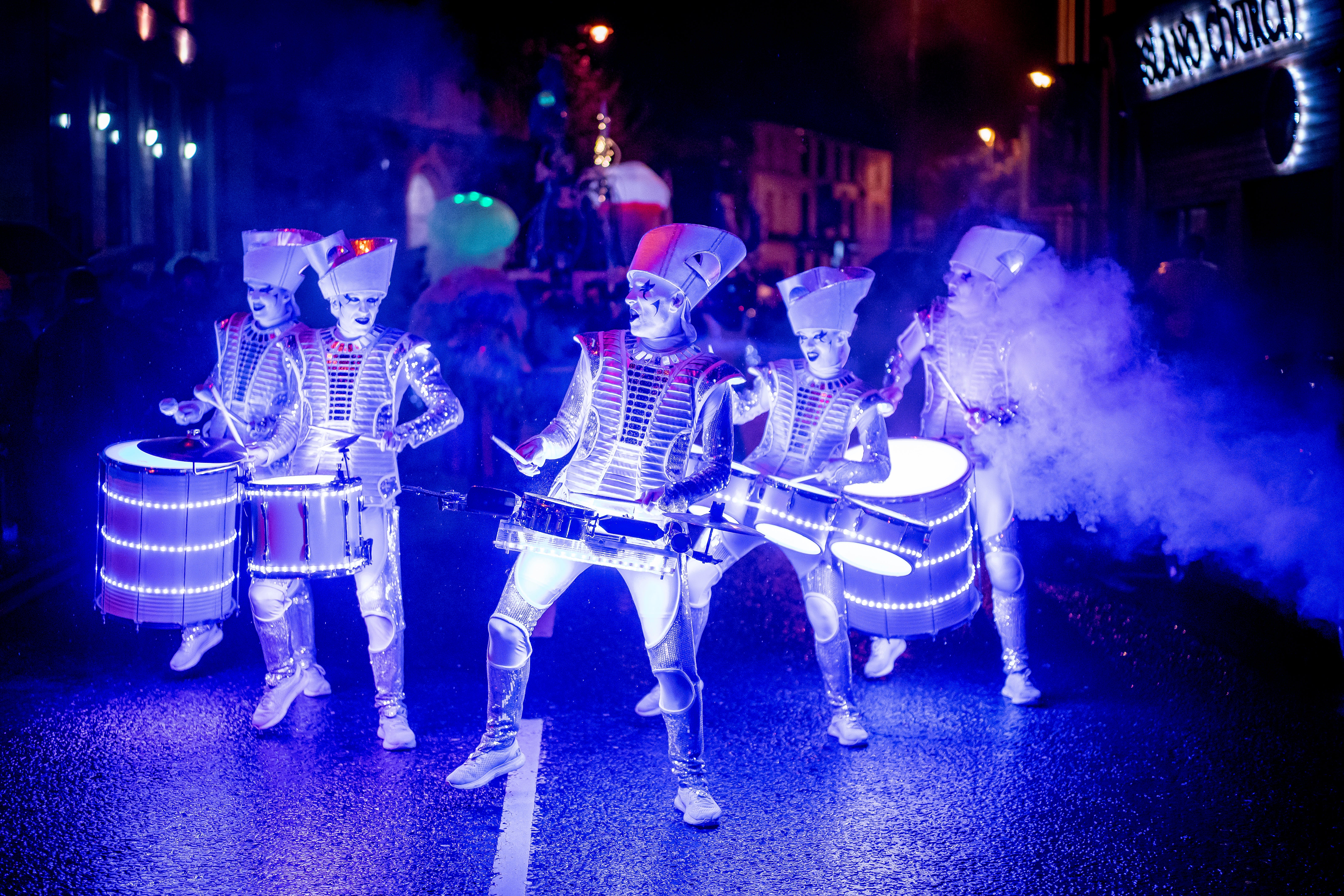
Charmoy’s birthday felt significant to me, and not just because of the mushrooms and mezcal. Looking around, it felt momentous to see glamorous international guests all celebrating an Irish festival. Using our rituals and wisdom to heal, and face down the darkness together. Benefitting from an ancient wisdom that we’d been taught – forcibly – to forget.
When I sum up Samhain to friends, I use Murphy’s words. “There’s two ways of dealing with the unrelenting Earth’s orbiting of the sun and the tilting of its axis,” he says. “You can shun it. You can deny it. You could cry about it. Or you can embrace it and, you know, face into it. I believe that the ancient pre-Christian celebration of Samhain was about that.”
How to celebrate Samhain in 2024
Samhain Festival Of Food & Culture 2024, Kells, Boyne Valley
If it’s the “feasting” element of the Samhain tradition that speaks most to you, head to Boyne Valley – an area particularly dense in sacred sites - for a long weekend of food and drink tastings, cookery workshops and talks, from 7 to 10 November.
The Dragon of Shandon Samhain Parade, Cork
On 31 October, Cork City comes alive with a huge dragon steered through the crowds by puppeteers to Coal Quay, for traditional music performances. The Samhain processions in Limerick and Waterford are also famous but Cork’s is perhaps the most visually stunning.
Derry claims to host Europe’s largest Halloween party, and for three days and nights from Monday 28 October, a Samhain market takes over Guildhall Square and Waterloo Place. Dress up or go home.





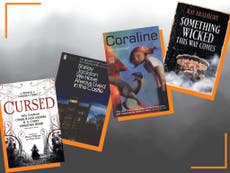

Join our commenting forum
Join thought-provoking conversations, follow other Independent readers and see their replies
Comments